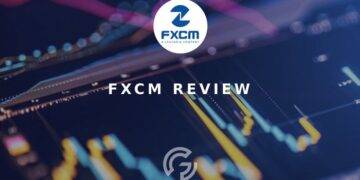If you’re an avid forex trader, then you probably know the importance of understanding the forex market clock. Not only can it help you understand when it’s time to buy and sell, but it can also be crucial to making your trading decisions.
New York Session
Forex market clock times are the hours that are used as the opening and closing time for trading in the global currency markets. The forex market operates in several different time zones, which vary in their opening and closing hours. This can make it difficult to find the best time to trade, but it can also be helpful to know how the time zones interact with one another. Generally, the first three hours of New York trading are the most volatile. However, later in the day the volatility decreases. Trade during these hours using range trading strategies. For American traders, the best time to trade is the morning London session. These are the hours when European traders are not yet active. It is also the most liquid session.
During this time, the dollar serves as the cue to the trading activity. Most important economic reports are released during the first few hours of the session. Some key markets in North America, including the United States, Canada, and Mexico, are open during this time. Several of these locations provide a significant pull for the currency market.
London Session
The Forex market is open for trading 24 hours a day, seven days a week. This market is a global market with a large number of financial institutions and corporations, which conduct transactions on a daily basis. There are three main trading sessions, which occur at different points of the day. These sessions are: Asia, Europe, and North America. Each session based on forex market clock represents a different part of the world, and each is associated with a significant amount of transactions. In some instances, two of these sessions may overlap. During this time, the largest volumes are traded.
London is a key forex market hub. It is the capital of the United Kingdom and is also the reference point for all major European financial centres. However, it is not the only forex hub in the world. Tokyo, Hong Kong, Singapore, and other markets contribute to this session’s activity. Japanese yen is the most traded currency in the world. Other active pairs include EUR/JPY and GBP/USD.
Autumn And Winter Sessions
During the autumn and winter months, the forex market clock runs from a few hours after the end of the US trading session until just after 22:00 GMT on Friday. This is the time when the markets are usually quiet and the trading volume is lower. It is also the time when the currency markets close and most speculators are taking a break from the rigors of trading.
When the market is active, it has high volatility. In particular, the European and US sessions overlap and this has the potential to produce more volume and price activity. During the Asian session, the liquidity tends to be low. The Tokyo and Sydney sessions are the least active. This is due to the fact that these sessions are in the southern hemisphere and are in opposite daylight savings seasons to New York and London. Combined, these ten hour periods form a “quiet zone”.
The European and American sessions are linked through a number of key financial markets. These include the Euro, the British Pound, and the Swiss Franc. A few other countries also make up the session.
Geopolitical Factors
Geopolitical events can have a significant impact on the forex market. These events can affect currency exchange rates and the economic outlook for a country. In addition, geopolitical risk can lead to changes in policies. Several studies have attempted to develop continuous measures of geopolitical risk. Caldara and Iacoviello present a novel measure of global geopolitical risk. They also found that heightened geopolitical risk reduced stock returns. The reductions were larger for firms with a higher ratio of fixed assets to total assets.
Moreover, Baker, Bloom and Davis found that geopolitical risk was lower during times of multilateral talks. However, the magnitude of the reduction was larger for firms with a higher share of domestic investors. While more developed markets tend to recover from sudden shocks more quickly, unexpected events can have negative effects for emerging markets. For example, a country that suffers a catastrophic event can cause a decline in the value of its currency. The most common types of geopolitical events are political unrest, civil wars, and epidemics. However, other factors can also affect currency exchange rates.









